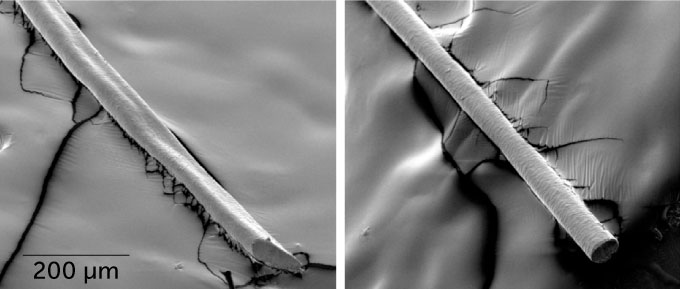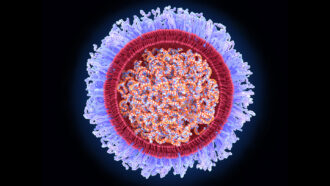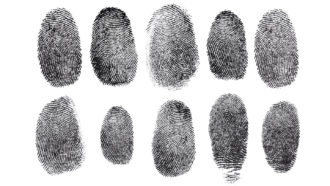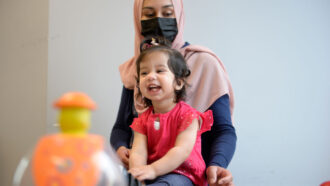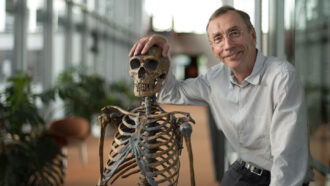biologist: A scientist involved in the study of living things.
colleague: Someone who works with another; a co-worker or team member.
dermatology: The branch of medicine concerned with skin disorders and their treatments. Doctors who treat these disorders are called dermatologists.
diagnose: To analyze clues or symptoms in the search for their cause. The conclusion usually results in a diagnosis — identification of the causal problem or disease.
disorder: (in medicine) A condition where the body does not work appropriately, leading to what might be viewed as an illness. This term can sometimes be used interchangeably with disease.
disrupt: (n. disruption) To break apart something; interrupt the normal operation of something; or to throw the normal organization (or order) of something into disorder.
DNA: (short for deoxyribonucleic acid) A long, double-stranded and spiral-shaped molecule inside most living cells that carries genetic instructions. It is built on a backbone of phosphorus, oxygen, and carbon atoms. In all living things, from plants and animals to microbes, these instructions tell cells which molecules to make.
gene: (adj. genetic) A segment of DNA that codes, or holds instructions, for a cell’s production of a protein. Offspring inherit genes from their parents. Genes influence how an organism looks and behaves.
genetic: Having to do with chromosomes, DNA and the genes contained within DNA. The field of science dealing with these biological instructions is known as genetics. People who work in this field are geneticists.
mutation: (v. mutate) Some change that occurs to a gene in an organism’s DNA. Some mutations occur naturally. Others can be triggered by outside factors, such as pollution, radiation, medicines or something in the diet. A gene with this change is referred to as a mutant.
symptom: A physical or mental indicator generally regarded to be characteristic of a disease. Sometimes a single symptom — especially a general one, such as fever or pain — can be a sign of any of many different types of injury or disease.
syndrome: Two or more symptoms that together characterize a particular disease, disorder or social condition.
variant: A version of something that may come in different forms. (in genetics) A gene having a slight mutation that may have left its host species somewhat better adapted for its environment.

